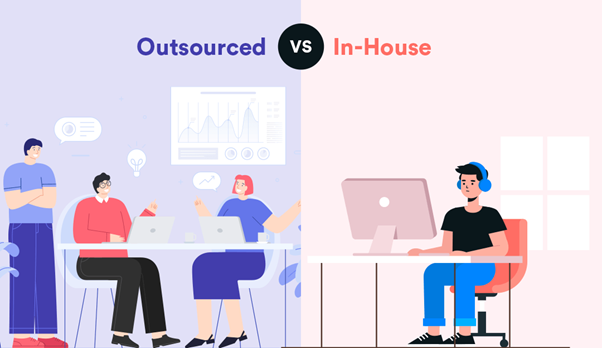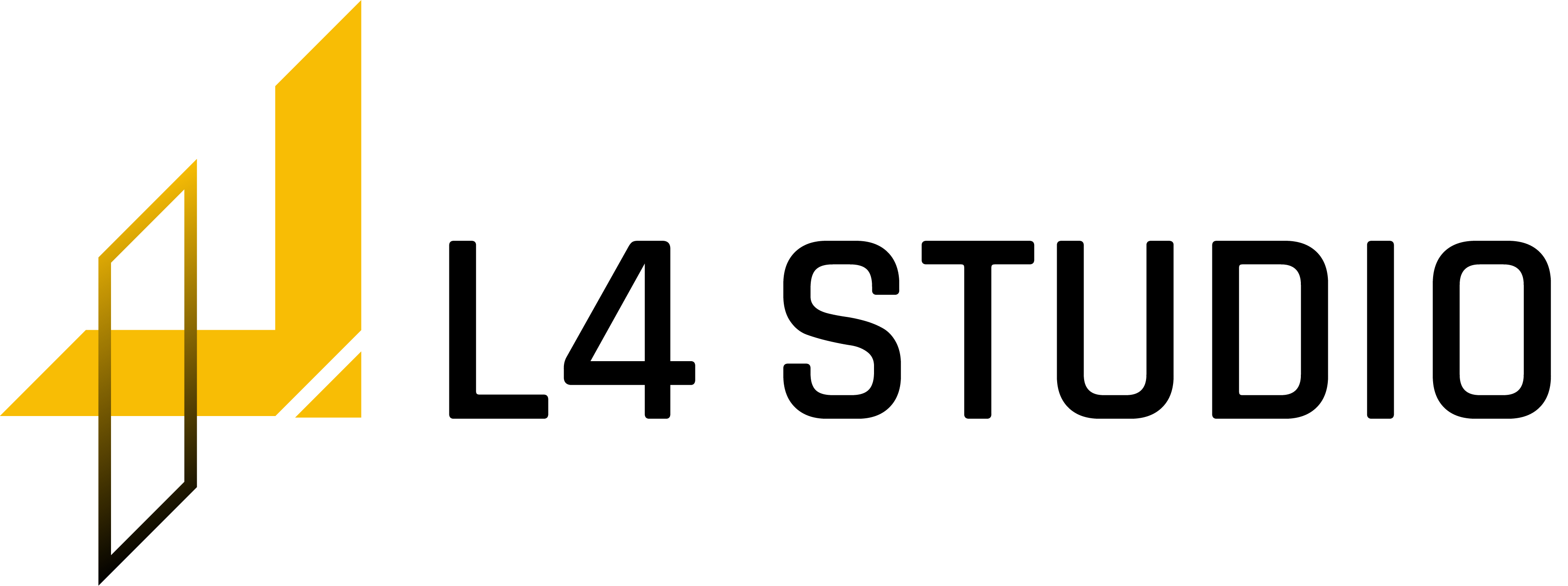
What is the difference between in-house development and outsourcing?
For years, outsourcing IT operations and development have been a hot topic. Scalability, more reliable disaster recovery, easier access to subject matter experts, lower expenses, and the opportunity to focus resources on core company development are all advantages of IT outsourcing. But in-house development and outsourcing, what is the difference?
1. What is in-house development?
In-house development allows you to create your team from the ground up. You’ll be tasked with filling open roles depending on the skill sets and expertise required to complete the project. Amazon and Paypal hire their developers, which gives them complete control over the project at a greater cost.

Figure 1. Inhouse development is the developer working directly for your company
Choosing in-house development is similar to hiring permanent employees for your company. To develop your own IT team, you’ll need to go through the recruiting, interviewing, and onboarding process. It may be feasible to staff in-house if your startup is only focused on an IT product.
2. What has outsourced development?
Outsourced development, as the term implies, entails entrusting the creation of a product to a third party. The requirements are usually communicated to the outsourcing agency through a contractual agreement.

Figure 2. Outsource developer only working for you in every single project
Because of its low cost and scalability, outsourced development is popular. IT outsourcing earned $66.5 billion in global revenue in 2019 as part of an ever-growing trend. Some well-known organizations that have outsourced their IT development include Google and Slack.
3. All the differences when comparing in-house development and outsourcing
3.1 Time to recruit
Recruiting an in-house developer takes about 40 days on average, and you’ll have to cover recruitment costs.
Finding an outsourcing business takes roughly 1-4 weeks (depending on your requirements and engagement). Your time is the most expensive item here.
3.2 Expertise and availability
There are a limited number of developers working in the area. The individual’s level of experience is greatly variable. Here, too, your location is crucial.
Outsourcing allows you to tap into a global talent pool. Companies are more likely to have a wide range of project experience. Experienced and talented outsourcing providers will charge greater fees and that is the greatest difference when comparing in-house development and outsourcing.

Figure 3. Difference between Outsource and in-house developers?
3.4 Costs
The average developer pay in Europe is roughly €50,000 (annually). According to Glassdoor, the average salary in the United States is roughly $90,000.
And the average hourly pay for outsourcing is $50-100 per employee (in Europe & the USA, the rate depends on the country). Any additional expenses are insignificant.
3.5 Scaling flexibility
Hiring and discharging employees is a time-consuming process. Some abilities are nearly tough to come by in your area. It can also be difficult to locate developers willing to work on short-term projects.
Outsourcing to a software development firm is similar to using an on-demand service in that you can change the contract at any time. One of the most significant benefits when comparing in-house development and outsourcing.
3.6 Development speed
The number of individuals on board and the time it takes to recruit limit the speed with which items can be built in-house.
Outsourcing allows for the speedy formation of temporary teams, which may result in speedier development.
3.7 Management
An introduction and training are required for onboarding internal staff. It takes time and work, but the results are well worth it. You’ll need someone to lead the group. There will be no time zone variances with an in-house team.
Outsourcing teams are used to jumping right in, are self-organized, and self-sufficient, but they are less inclined to see your project as their own. It may take some time to find a committed companion. Due to time zone differences, a unique process organization may be required.
3.8 Communication
Face-to-face communication is more natural and comfortable, but it is also more prone to distraction and useless chit-chat. In-house development ensures a better fit in terms of language and culture.
Online conversation is less natural and causes more friction, but it does reduce distractions. Outsourcing to other countries could result in linguistic and cultural issues. It’s critical to find high-quality partners in this situation.
Conclusion
No answer can tell exactly which one is better when comparing in-house development and outsourcing. The best answer will depend on your business, you’ll need to evaluate your requirements and resources to choose one.
Sources: Internet
——————————
L4 STUDIO – LEADING SOFTWARE DEVELOPMENT COMPANY IN VIETNAM
Website: https://l4studio.net/
Email: hi@l4studio.net
Phone: (+84) 28 6675 6685
Our Website Development Services: https://l4studio.net/website-development/
For more interesting blogs: https://l4studio.net/it-knowledge/
Follow us at: https://www.facebook.com/L4Studiovn/
Read more: WHY IS INNOVATION HEALTH APPS IMPORTANT IN HEALTHCARE?








